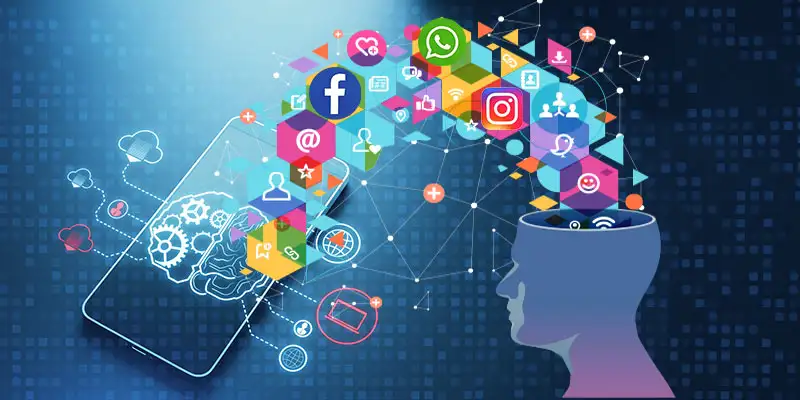In an age where technology is woven into every aspect of daily life, the term “brain rot” has emerged to describe the gradual decline in our cognitive and imaginative abilities. Brain rot is not a clinical diagnosis, but a metaphorical concept that resonates deeply with many people. It’s a feeling of mental fog, lack of concentration, poor memory, and loss of creative spark, symptoms that seem to coincide with our increasingly technology-dependent lifestyles. From the endless scrolling of social media to the overuse of AI tools to solve problems, modern technology has changed the way we think, act, and interact.
In the past, humans relied solely on memory to capture and relive experiences. Visiting a picturesque landscape or having a moving encounter means using your cognitive abilities to imprint the moment in your mind. These fleeting memories prompt the brain to imagine and reconstruct, painting a vivid picture of the past. For those seeking permanence, painting became a way to immortalize experiences. A skilled artist can bring emotional encounters and beautiful landscapes to life with brushstrokes, creating a visual diary of human history and emotions. Later, souvenirs such as diaries, keepsakes, and personal artifacts became popular, serving as tangible tokens of cherished moments. Then came the photos. This was a revolutionary leap forward that froze time for people. Accurately capture memories with just a click, eliminating the need for subjective recall or artistic interpretation.
The evolution of technology didn’t stop there. Photographs were followed by videos, turning static images into dynamic, vivid memories. Recording movement and sound brings static moments to life, allowing people to relive emotions and events with incredible accuracy. Today, technologies such as augmented reality (AR) and virtual reality (VR) have taken memory storage to a whole new level. These tools allow you to immerse yourself in the experience as if you were there again, recreating the sights, sounds, and even emotions of the moment in a way that is almost indistinguishable from reality itself.
However, these advances have revolutionized the way we store memories. They also had unintended consequences. As technology takes on the role of storing our memories, we become less dependent on our own cognitive abilities. Tasks that once required mental effort, such as remembering a friend’s birthday, remembering a shopping list, or scheduling an important meeting, are now delegated to apps and devices. I did.
harmful effects
Research points to the negative effects of technology on human cognition. For example, a 2019 study found that increased internet use and media multitasking was associated with decreased gray matter in the brain’s prefrontal cortex. These areas play important roles in decision-making, concentration, and self-control. Simply put, constantly switching between apps and tasks online (a habit many of us commit) physically shrinks the part of the brain responsible for thinking clearly and staying organized. Possibly.
Excessive screen time is thought to be associated with significant neurological deficits, especially in children where important developmental stages are disrupted. Additionally, the instant gratification of social media and constant multitasking have been shown to impair attention span and memory. Essentially, our brains are less efficient at processing and retaining information. This is largely because technology is providing solutions.
Stifling creativity
This problem is further exacerbated by the rise of generative AI tools such as ChatGPT, Gemini, and Bard. These models are so fluent and persuasive in their responses that they encourage overdependence and encourage feelings of inferiority in users. Instead of brainstorming and problem-solving independently, people are increasingly relying on AI to get answers. This addiction not only reduces the brain’s ability to think critically, but also inhibits creativity.
Children and adolescents are particularly susceptible to these effects. Because their brains are still developing, they are more susceptible to the long-term effects of overexposure to technology. Research shows that constant interaction with screens during formative years can hinder the development of important cognitive skills such as problem-solving, adaptability, and creativity. Additionally, the instant gratification provided by social media and gaming platforms can create habits that are difficult to break, reinforcing cycles of passive consumption and decreasing active engagement with the world.
leads to passivity
Technology companies play a key role in facilitating this dependency. Devices and platforms are designed to maximize user engagement, often prioritizing convenience and gratification over cognitive engagement. For example, social media algorithms curate content based on user preferences, eliminating the need for us to research or think critically about what we consume. Streaming platforms like Netflix subtly encourage focused viewing and discourage active decision-making by automatically playing the next episode. The result is a digital ecosystem that rewards passivity and leaves little room for reflection, curiosity, and creative exploration.
In a world where technology is intertwined with nearly every moment of our lives, reclaiming our cognitive abilities and imagination is not just a choice, it’s a necessity. However, completely abandoning devices and apps is neither realistic nor a solution. Instead, we need to restructure the way we interact with technology so that it complements rather than competes with our mental abilities.
The first step is not to set hard and fast rules, but to understand our relationship with technology. We can also become more deeply immersed in our physical environment. Reclaiming mental agility means questioning addiction, not rejecting convenience. Small challenges like remembering a friend’s birthday or navigating without GPS may seem trivial, but they act as brain training. They challenge us to rely on our own abilities and rebuild pathways that digital shortcuts have eroded. We need to choose content that challenges our cognitive abilities rather than disrespecting them. Technology isn’t inherently bad. It depends on what we choose to work on. The ultimate goal is not to reject technology, but to coexist with it while respecting humanity.



